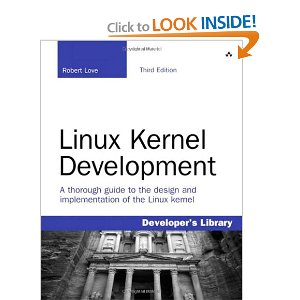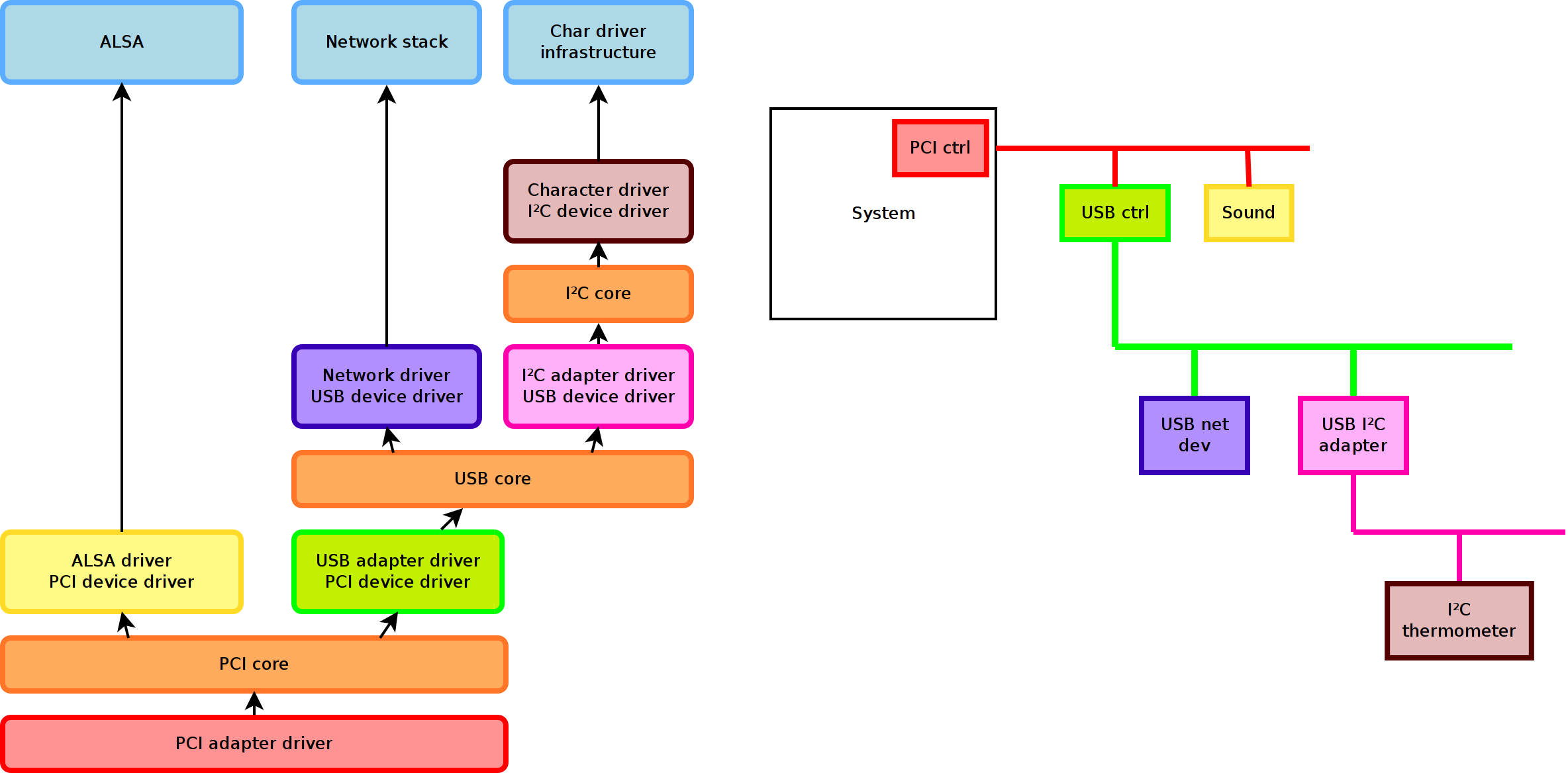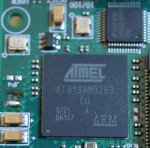
Linux Kernel Development is a book authored by Robert Love, a famous kernel developer. Contrary to the very famous Linux Device Drivers book, Linux Kernel Development is not oriented towards driver development, but instead covers how the core Linux kernel works.
Having this knowledge is not absolutely necessary to write Linux device drivers, but having a good overall understanding of the kernel always help to understand what’s going on in your system, even at the application level. In July this year, the third edition of Linux Kernel Development has been published, which upgrades the book contents to kernel version 2.6.34, a good opportunity to have a new look at the book that Bootlin received a few weeks ago.
After a quick introduction to the kernel sources (configuring, building, organization of the source tree), the book immediately dives into kernel internals:
- Process management: how the kernel represents processes and their state, how processes are created inside the kernel, how threads are handled, are processes are terminated.
- Process scheduling: a full chapter dedicated to the Linux kernel process scheduler. The new CFS scheduler is of course covered in great detail, with large portion of commented source code, for those who want to understand the fine details of the scheduler. Topics such as process sleep/wake-up, preemption, real-time scheduling policies are also covered.
- System calls are then covered: how they are implemented, how parameters are passed from userspace to the kernel, etc. The call path from your user-space application down to the kernel is well explained in this chapter.
- Kernel data structures: a generic chapter which details the kernel API for linked lists, queues, maps, and binary trees. Those APIs are omni-present inside the kernel, and it’s therefore a good idea to know how they work, both for understand existing code and for writing new code.
- Interrupts: how interrupts are handled and how one can write an interrupt handler. Unfortunately, the newly introduced threaded interrupt handlers are not covered, but it’s true that their usage is not yet very widespread inside the mainline kernel.
- Bottom halves and deferring work, a topic closely related to interrupt handling. It covers bottom halves, softirqs, tasklets and workqueues.
- Kernel synchronization: two chapters are dedicated to this topic. First a chapter detailing why synchronization is needed, what are the sources of concurrency and what should be protected against concurrent access. And then a chapter detailing the mechanisms provided by the kernel to implement proper synchronization: atomic operations, spin locks, reader-writer spin locks, semaphores, reader-writer semaphores, mutexes, completion variables, sequential locks, preemption disabling, ordering and barriers
- Timers and time management details how the kernel manages time: ticks, jiffies counter, timers, delaying execution of code are covered in this chapter. There are unfortunately no details about the clocksource and clockevents infrastructure, and no details about how timers and high-resolution timers are implemented. Contrary to other chapters that go fairly deep into the implementation details, this one mostly only covers the API to time management rather than the internals.
- Memory management is the topic of the following chapter: physical memory management with the page allocator and the physical zones, then the kmalloc, vmalloc and SLAB allocators are covered. High-memory mappings, a topic specific to 32 bits architectures having more than a gigabyte of RAM is also covered in detail. The per-cpu interface is also covered, and will help those who want to understand parts of the kernel that have been optimized for scalability on multiple CPUs.
- The Virtual Filesystem, with its different objects: superblock, inode, dentry and file is covered in good detail.
- The block layer is then covered, with a description of the role of the bio structure, the request queues, and the I/O schedulers.
- Then, the book goes back to more details about the internals of memory management: the mm_struct memory descriptor, the virtual memory areas (so called VMAs) and how they relate with the mmap/munmap system calls. The next chapter continues with a detailed description of the page cache implementation.
- A fairly strange chapter called “Devices and modules” gives some information about kernel modules (how to build them, how to use module parameters, how dependencies are handled), then covers the internal of the device model (kobjects, ktypes, ksets, krefs) and finally sysfs. Just like the chapter covering the device model in the third edition of Linux Device Drivers, I think it totally misses the point. All the kobject, ktypes, ksets and krefs stuff is very low-level plumbing used by the Linux device model, but it is not exactly what the driver developer needs to interact with in the first place. In my opinion, a good description of the device model should rather explain what struct bus_type, struct driver and struct device are, how they are specialized for the different bus types in pci_driver, pci_device, usb_driver, usb_device, platform_driver, platform_device, and how the registration/probing of drivers and devices is done. I’ve recently given a talk about this topic, the video is in French, but the slides are in English.
- Debugging is then covered: printk of course, but also oopses, debugging-related kernel options, the magic SysRq key, kernel debuggers, etc.
- A rather generic chapter about Portability is then proposed, and finally a chapter about Patches, Hacking and the community that details the kernel community, the kernel coding style, how to generate and submit patches, etc.
All in all, Linux Kernel Development remains very good reading. I particularly appreciate the writing style of Robert Love, who manages to make a deeply-technical book interesting and easy to read. Of course, there are some topics in the kernel in which I had to dive myself and for which I’d expect to see more details in this book, but giving every possible detail about a huge beast such as the Linux kernel in just 400 pages is not possible!


 Looking for kernel and embedded Linux experts
Looking for kernel and embedded Linux experts Linux 2.6.33 was out on Feb. 24, 2010, and to incite you to try this new kernel in your embedded Linux products, here are features you could be interested in.
Linux 2.6.33 was out on Feb. 24, 2010, and to incite you to try this new kernel in your embedded Linux products, here are features you could be interested in.
 Linux 2.6.30 also features the inclusion of
Linux 2.6.30 also features the inclusion of  The 2.6.29 version of the Linux kernel has just been released by Linus Torvalds. Like all kernel releases, this new version offers a number of interesting new features.
The 2.6.29 version of the Linux kernel has just been released by Linus Torvalds. Like all kernel releases, this new version offers a number of interesting new features.